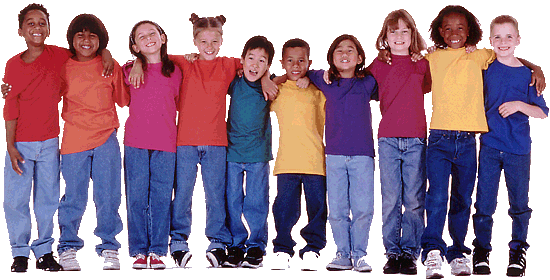
My 14-year-old son has been wanting to work a real job since he was in elementary school. He could apply for a special work permit and find a job this summer, but I think he should wait until next year. How do you feel about young teens working in retail or food service?
 As someone who had their first job at Taco Bell at the age of fourteen, followed by a lengthy engagement as a clown for birthday parties and events shortly thereafter, I have a particular bias in favor of young teens working when they feel they are ready. I learned quite a bit about myself and other people from those early jobs. It absolutely helped me understand the importance of teamwork and communication skills. I found it increased my confidence and improved my academic performance. Not to mention, I had a new and forever ingrained appreciation for workers in service industries. Increasingly, teens are losing out on these opportunities, making it more challenging to tough it out in higher education, internships, and entry level positions when they are older. Life skills such as problem solving and learning from criticism are invaluable.
As someone who had their first job at Taco Bell at the age of fourteen, followed by a lengthy engagement as a clown for birthday parties and events shortly thereafter, I have a particular bias in favor of young teens working when they feel they are ready. I learned quite a bit about myself and other people from those early jobs. It absolutely helped me understand the importance of teamwork and communication skills. I found it increased my confidence and improved my academic performance. Not to mention, I had a new and forever ingrained appreciation for workers in service industries. Increasingly, teens are losing out on these opportunities, making it more challenging to tough it out in higher education, internships, and entry level positions when they are older. Life skills such as problem solving and learning from criticism are invaluable.
Check in with your son to explore his reasons for wanting to start a summer job. Ask if these reasons revolve around seeking independence, an aspiration to save money, or have his own to spend. Is there a desire to take on more responsibility or widen his social circle? These may be sensible reasons for applying for summer work at his age. Assess his readiness by assigning tasks at home that require him to be in service to others to earn an allowance over the typical chores. This could prove to be great practice and help you both determine whether a summer job is a good idea at this time. Working at a younger age ultimately depends on the child and your family’s needs.

My family is white and we live in a fairly homogeneous community. We don’t have any non-white family members or Black friends. I am the mom of two toddlers. Can you offer a few easy-to-execute and cost-effective parenting strategies that will help my little ones realize we live in a diverse and multicultural country? I want to do this in a meaningful way from the start with my kids.
 This is a common issue for white families who find themselves in insular communities, but want their children to understand the perspective of cultures different from their own. It’s not easy to know where to begin. The first step to take is to spend time outside your own neighborhood in order to expand your children’s understanding of community. It is especially important to do this with young children as they begin to memorize and code what and who is safe for them to interact with. The reaction to faces, skin tones, and vocal qualities of people who aren’t similar to what we’ve encountered as babies is registered in the parts of our brain associated with fear. The ideal is to explore neighborhoods, festivals, playgrounds, parks and other hubs for families who are from diverse racial, ethnic, and cultural backgrounds.
This is a common issue for white families who find themselves in insular communities, but want their children to understand the perspective of cultures different from their own. It’s not easy to know where to begin. The first step to take is to spend time outside your own neighborhood in order to expand your children’s understanding of community. It is especially important to do this with young children as they begin to memorize and code what and who is safe for them to interact with. The reaction to faces, skin tones, and vocal qualities of people who aren’t similar to what we’ve encountered as babies is registered in the parts of our brain associated with fear. The ideal is to explore neighborhoods, festivals, playgrounds, parks and other hubs for families who are from diverse racial, ethnic, and cultural backgrounds.
Given the circumstances of the current pandemic and limited outdoor activities, there are still several other meaningful approaches that are easy to execute.
Explore other aspects of arts and culture in the city. Richmond often has rich family offerings at the VMFA, the Valentine, the Virginia Museum of History and Culture, the Black History Museum, and other sites that are age-appropriate. These include heritage month celebrations with special exhibits and music that would allow your children to absorb the sites and sounds of our multicultural city. You may also get in the car and take a family tour of the abundant brightly colored murals across our city – downtown, VCU, Carytown, Museum District, and Jackson Ward areas – that feature Black, Indigenous, and People of Color (BIPOC) stories and inspirational figures. Talk to your kids about these and other works of art that center on BIPOC artists and subjects so that they become familiar.
Increase the diversity of books in your home. There are a number of online resources devoted to offering book titles to families who would love for their children not only to see diversity of race, ability, and gender, but to better understand the lived experiences of people of diverse identities. To find multicultural books for young children, I recommend booksforlittles.com, diversebooks.org, socialjusticebooks.org, and raisingworldchildren.com.
Seek out multiculturalism in the television and film media you consume. If your toddlers watch television or interact with online media, be sure that the program characters and hosts come from diverse backgrounds. White characters in statuses of privilege tend to be the default for television programs and movies. Be intentional about seeking out and exposing your kids to programs where BIPOC performers are also centered or have fully realized characters free of stereotypes.
Join or start an online group with other parents who wish to be more inclusive. When I lived in Bon Air, I was delighted to join the “Neighbors for An Inclusive Bon Air” Facebook group and interact with other families looking to learn from each other. Intentionally engaging with inclusive online discussion groups and meet-up groups who plan activities would do much to expand your family’s perspectives.
Have conversations about difference with your children. For example, if your children play with dolls that represent various skin color types, notice and encourage positive play and interaction. You might invest in purchasing dolls and action figures that specifically represent multiple cultures and help your kids engage in creative play based on some of the stories and themes you’ve found in your set of diverse books.
Keep in mind that while stepping outside of your community may prove more difficult right now, there are many strategies to easily execute this from your own home. Any step toward increasing your own and your children’s awareness and interactions with diverse cultures is a step in the right direction.




